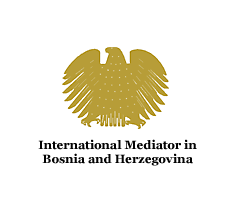TRIP REPORT 2003-4 - 24-30 AUGUST 2003
IntroductionThe peace implementation process in Bosnia and Herzegovina (BaH) is accelerating and milestones are slowly being achieved. For example, it seems that by the end of 2003 most municipalities will be finished with property law implementation (PLIP) or will have just a few remaining cases. While this is a major success for the peace process, some negative side effects can be identified. Firstly, the level of reconstruction aid has diminished substantially at the precise moment when it is most needed, and returnee families are becoming very disillusioned with the process. Many returnees have repossessed their property only to exchange them for housing in their place of displacement. Other families have been evicted from their temporary accommodations because they have repossessed their former homes; but reconstruction aid has not been forthcoming.
Secondly, the pace of PLIP implementation has not paralleled sustainable reintegration or reforms at the local level. The returnees still face subtle and institutional discrimination, especially in former hard-line areas. They bear the overwhelming burden in unemployment and are not given enough information on their economic opportunities, such as grants, credits, and possible employment opportunities. Power still resides mainly with the dominant ethnic group in each municipality, and local leaders do not show any inclination to share power or to consult other groups on urgent problems.
Thirdly, the level of development and the technical capacity of local leaders to meet the challenges of a modern state with European and international standards vary widely from municipality to municipality. Many of the skilled potential returnees are sceptical about returning and their employment possibilities. In addition, local administrations reflect more party affiliation than a skilled cadre of educated experts able to bring these municipalities into the 21st century.
The Mediator’s task is becoming increasingly difficult because of these developments and the lack of resources to implement mutually acceptable solution. The arguments are less ideological or entrenched nationalist views and more practical political considerations. Elected leaders are not going to disadvantage their political constituencies only to be voted out of office. There are also no incentives for them to cross the ethnic divide and represent all citizens. Local leaders argue that if the financial resources were made available they would be more open to compromises or joint solutions. On the other hand there are many issues that could be resolved at the local level with little financial means that are not being resolved. During the final visit to each municipality the Mediator summarised the mediation process and identified issues that still need to be resolved, especially regarding inter-ethnic dialogue.
The Mediator visited Capljina, Stolac and Trebinje and was accompanied by his mediation team: Amela Curkovic, Juan Diaz and Dieter Wolkewitz. They are grateful for the contributions by the entity ombuspersons during the briefings and mediations. The delegation would like to express its special gratitude to OSCE Operations in BaH, OHR/RRTF (BaH) and the German Embassy in Sarajevo for their logistical support. Special appreciation also goes to the EUPM, OHR, OSCE, RRTF, SFOR, and UNHCR officers in Capljina, Mostar, Stolac, and Trebinje for providing briefings, additional translation, input and organisational support and for participating in the meetings with the local authorities.

